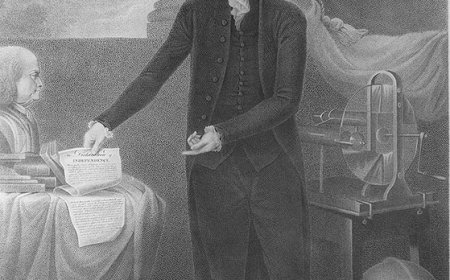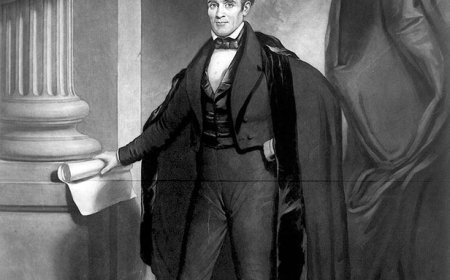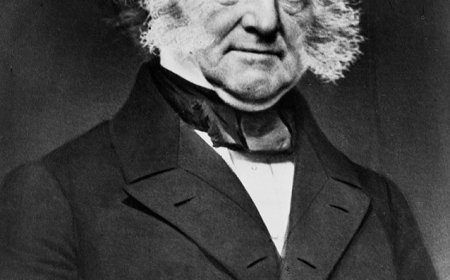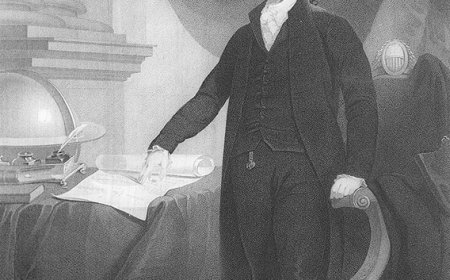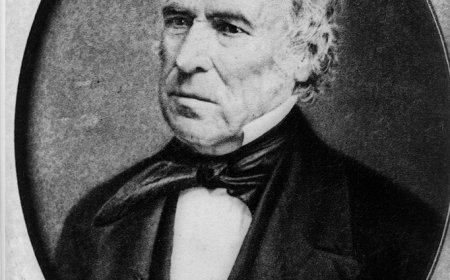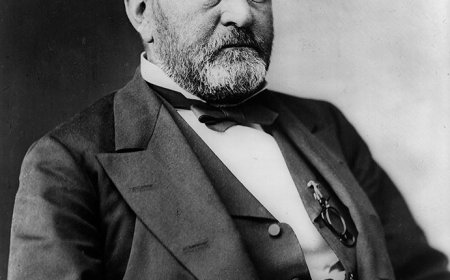George H. W. Bush 41st President and Leader Through Global Change
Discover the life of George H. W. Bush, 41st President of the United States. Learn how he led the U.S. at the end of the Cold War, during the Gulf War, and supported international diplomacy—plus vocabulary, fun facts, a quiz, and a kid-friendly summary.
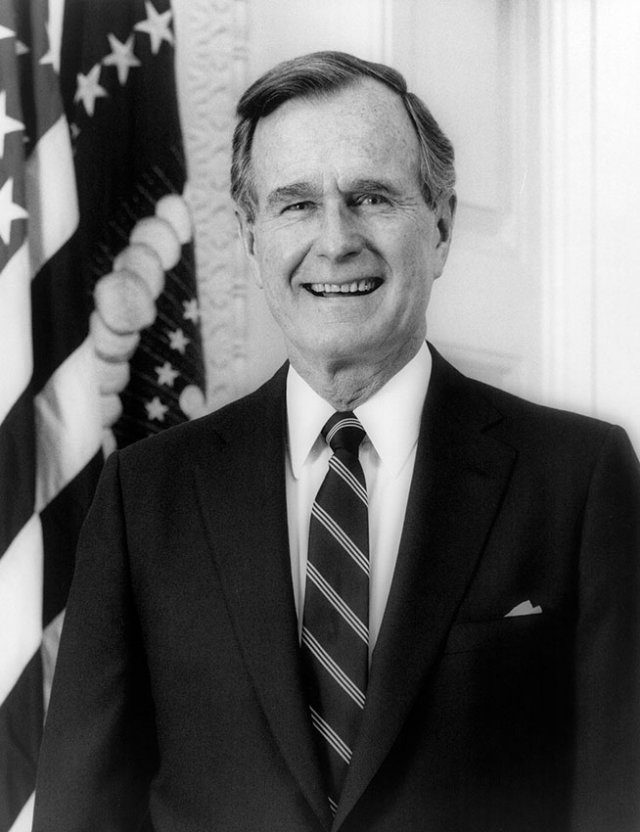
🇺🇸 George H. W. Bush Biography for Students
41st President and Leader Through Global Change
🧭 Introduction
George H. W. Bush was the 41st President of the United States, serving from 1989 to 1993. He was known for his long career in public service and his skill in foreign policy. Bush led the country through some of the most important global changes of the 20th century, including the end of the Cold War, the fall of the Berlin Wall, and the successful military mission known as the Gulf War. While he served only one term, Bush is remembered as a leader who valued diplomacy, international cooperation, and service to country.
👶 Early Life and Education
George Herbert Walker Bush was born on June 12, 1924, in Milton, Massachusetts, but grew up in Greenwich, Connecticut. His father, Prescott Bush, was a U.S. Senator. From a young age, George was taught the importance of hard work, patriotism, and leadership.
After graduating from high school, Bush joined the U.S. Navy during World War II. He became the youngest naval aviator at the time, flying combat missions in the Pacific. In one mission, his plane was shot down, but he survived and was rescued by a submarine. For his service, he earned several medals, including the Distinguished Flying Cross.
After the war, Bush attended Yale University, where he played baseball and studied economics. He later moved to Texas and worked in the oil business before entering politics.
🏛 Political Career Before the Presidency
George H. W. Bush had one of the most impressive public service careers before becoming president. He served in many important roles:
- U.S. Representative from Texas
- U.S. Ambassador to the United Nations
- Chairman of the Republican National Committee
- U.S. Envoy to China (before full diplomatic relations were restored)
- Director of the Central Intelligence Agency (CIA)
- Vice President under Ronald Reagan (1981–1989)
Bush’s deep experience in foreign affairs and national security made him a trusted leader. When Reagan’s presidency ended, Bush ran for president in 1988 and won, promising to continue Reagan’s legacy while also offering his own leadership style.
🇺🇸 Bush’s Presidency (1989–1993)
As president, George H. W. Bush took office during a time of great international change. His calm and steady leadership helped the U.S. respond to world events with confidence and care. He believed in global partnerships, strong defense, and wise decision-making.
Bush also signed the Americans with Disabilities Act (ADA) in 1990, a groundbreaking law that gave people with disabilities better access to jobs, transportation, and public places. It was one of the most important civil rights laws of the 20th century.
He also worked on:
- Improving the environment with the Clean Air Act
- Supporting education and volunteerism
- Working with Congress to reduce the national deficit (though this became controversial)
🌍 End of the Cold War and Foreign Policy Success
Bush is perhaps best known for his strong foreign policy skills. During his presidency, the Cold War ended, the Berlin Wall came down, and the Soviet Union broke apart. These were historic events, and Bush worked closely with world leaders to manage the changes peacefully.
He also built strong relationships with allies in Europe and Asia, helping to create a safer and more cooperative international community. He was praised for being thoughtful, careful, and respectful in his approach to diplomacy.
⚔️ The Gulf War and Operation Desert Storm
In 1990, Iraq, led by dictator Saddam Hussein, invaded the neighboring country of Kuwait. President Bush worked quickly with the United Nations and international allies to stop the aggression. He built a coalition of over 30 nations and launched Operation Desert Storm in early 1991.
The U.S. and its allies used airstrikes and ground forces to drive Iraqi troops out of Kuwait. The war lasted only six weeks and was considered a major victory. Bush decided not to invade Iraq itself, believing the mission—to free Kuwait—was complete.
Bush’s leadership during the Gulf War earned him high approval ratings and showed his ability to lead during a global crisis.
💰 Economic Troubles and 1992 Election Loss
Despite his foreign policy success, Bush faced challenges at home. The U.S. economy entered a recession, with rising unemployment and slow growth. Bush had promised during his campaign, “Read my lips: no new taxes,” but he later raised taxes to reduce the national debt. Many Americans felt disappointed by this broken promise.
In the 1992 presidential election, Bush ran for a second term but lost to Bill Clinton, a younger Democrat who focused on economic issues. Although disappointed, Bush handled the loss with grace and wrote Clinton a friendly letter, showing his respect for democracy.
🧾 Life After the Presidency
After leaving office in 1993, Bush stayed active in public life. He worked with former political opponents on charitable efforts and disaster relief, including with his son George W. Bush, who later became the 43rd president.
He also became friends with former President Bill Clinton, and together they worked on global aid and rebuilding efforts in places affected by natural disasters. This friendship became a symbol of unity and teamwork across political lines.
George H. W. Bush died on November 30, 2018, at age 94. He was remembered as a war hero, statesman, father, and public servant who always put country before politics.
👨👩👧 Personal Life and Character
George Bush married Barbara Pierce in 1945. They were married for 73 years and had six children, including future President George W. Bush and Florida Governor Jeb Bush. Barbara Bush was known for her kindness, literacy work, and strong personality.
Bush was known for his humility, politeness, and handwritten letters to friends and leaders. He loved skydiving—even in his 80s—and fishing at his family’s home in Kennebunkport, Maine.
💬 Famous Quotes
“A thousand points of light.”
—Encouraging Americans to volunteer and help their communities.
“Read my lips: no new taxes.”
—A campaign promise that later hurt his re-election.
“I take as my guide the hope of a saint: in crucial things, unity; in important things, diversity; in all things, generosity.”
—A message about respect and cooperation.
💡 Interesting Facts About George H. W. Bush
- He was the youngest naval pilot during WWII.
- He was the father of a future president, George W. Bush.
- He loved writing thank-you notes and personal letters.
- He went skydiving on his 75th, 80th, 85th, and 90th birthdays.
- His Secret Service code name was “Timberwolf.”
📚 Vocabulary Words
| Word | Definition |
|---|---|
| Recession | A time when the economy slows down, and many people lose jobs |
| Coalition | A group of countries or people working together for a common goal |
| Diplomacy | The skill of making peaceful agreements between countries |
| Operation Desert Storm | A military operation to remove Iraqi forces from Kuwait |
| Americans with Disabilities Act | A law that protects the rights of people with disabilities |
👧 Kid-Friendly Summary
George H. W. Bush was the 41st president of the United States. He had been a Navy pilot, a businessman, and a leader in many important government jobs. As president, he helped end the Cold War, led the U.S. during the Gulf War, and signed the Americans with Disabilities Act. Even though he lost re-election, he spent the rest of his life helping others and working for peace. People remember him as a kind, brave, and thoughtful leader.
✅ Interactive Quiz
Q1: What number president was George H. W. Bush?
A. 40th
B. 41st ✅
C. 42nd
D. 43rd
Q2: What war did Bush lead during his presidency?
A. Vietnam War
B. World War II
C. Cold War
D. Gulf War ✅
Q3: What major event happened in Europe during Bush’s presidency?
A. Great Depression
B. Berlin Wall came down ✅
C. Treaty of Versailles
D. Cuban Missile Crisis
Q4: What law did Bush sign to help people with disabilities?
A. Civil Rights Act
B. Clean Air Act
C. Americans with Disabilities Act ✅
D. Health Care Act
Q5: What was one reason Bush lost re-election?
A. He raised taxes ✅
B. He canceled space programs
C. He didn’t support the military
D. He moved to another country
Scoring:
5/5 = ⭐ Bush History Expert
3–4 = 👍 Nice Job
1–2 = 📘 Study a Bit More




















































